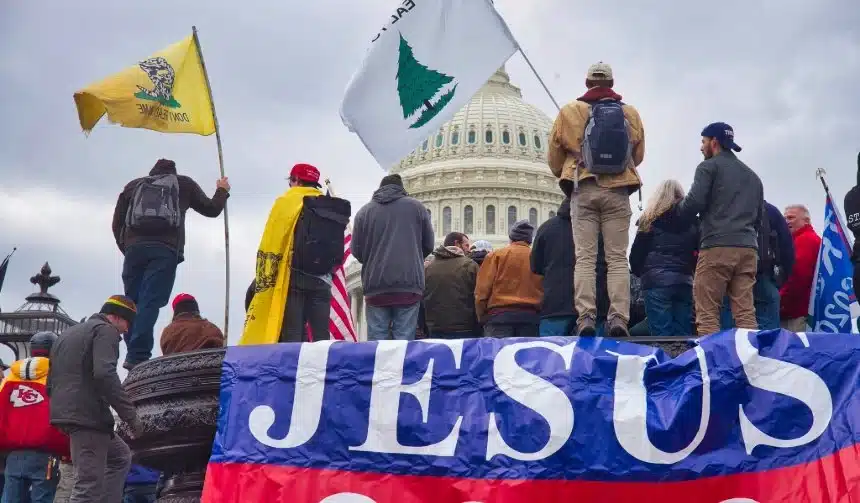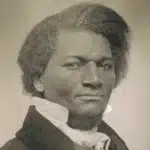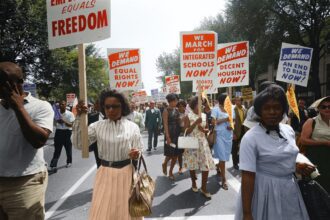In a time when racial divisions echo from the past to the present, the sermons of Minister Wesley Albert Swift shine a light on the complex interplay of white supremacy and anti-Semitic theology. His teachings, rooted in the Christian Identity movement, offer a window into how racial and religious ideologies have intertwined. These ideologies have not only shaped America’s past but continue to influence its socio-political landscape.
Swift’s message was not an anomaly but a mirror reflecting broader societal tensions. During the first decades of the Cold War, as America grappled with the civil rights movement and fears of communist infiltration, Swift’s voice found resonance. His sermons crafted a narrative where white supremacy was divinely ordained, and opposition to it was positioned as a challenge to divine will.
Christian Identity did not merely reflect the era’s racial and religious undercurrents; it actively contributed to them.
This narrative, deeply embedded in the Christian Identity belief system, did more than justify racial prejudices; it sought to sanctify them. Swift’s ideological legacy, therefore, is a testament to the enduring power of racial and religious narratives in shaping political and social realities. This article aims to delve into Swift’s teachings, unpacking how they have continued to echo through American life and the implications for understanding the intersection of faith, race, and politics today.
The Genesis of Christian Identity: A Historical Overview
In the aftermath of World War II, America found itself at a crossroads of ideology and identity. It was during this tumultuous period that Christian Identity took root. This movement fused white supremacist thought with anti-Semitic beliefs, reflecting broader societal fears of nuclear war and communism. Wesley Swift emerged as a key figure, using biblical texts to argue for the inherent superiority of the white race. His sermons did not merely echo the anxieties of the time; they actively shaped them.
Swift’s sermons offered a theological framework that legitimized white supremacist ideologies.
Swift’s interpretation of scripture positioned white people as God’s chosen, predestined for salvation. In contrast, Jews and other minorities were cast as diabolical adversaries, undermining societal harmony and divine order. And black people were mere pawns of those Jews. This ideology fed into existing tensions, exacerbated by the progress of civil rights movements. These movements, aiming to dismantle racial segregation and promote equality, were seen by some as a direct threat to white dominance.
Christian Identity thus became a political and social manifesto. It offered a theological justification for racial prejudice, framing it as a divine mandate. Swift’s sermons, widely disseminated among his followers, played a crucial role in legitimizing these views. They provided a narrative that resonated with those who felt their status threatened by the changing dynamics of American society.
As a result, Christian Identity did not merely reflect the era’s racial and religious undercurrents; it actively contributed to them. It became a tool for those seeking to preserve a particular social order, one where racial hierarchies were maintained under the guise of divine will. This historical overview underscores the complex interplay between theology, race, and politics in the formation and persistence of Christian Identity. It highlights how ideologies can be crafted, spread, and ingrained within societies, influencing both individual beliefs and collective actions.
The Architecture of Supremacy: Swift’s Theological Blueprint
Wesley Swift’s teachings crafted a foundation for Christian Identity that was as controversial as it was impactful. He proposed “Justification by Race,” a notion that twisted Calvinist ideas of predestination. According to Swift, salvation was a birthright of the white race, inherently positioning them closer to the divine. This reimagining of biblical stories placed whites at the center of a divine narrative, casting them as heroes in a cosmic struggle against evil, represented by Jews and non-whites.
Swift’s teachings offer a window into the construction of narratives that weaponize religion and race for political ends.
Swift’s sermons did more than just preach racial superiority; they offered a theological framework that legitimized white supremacist ideologies. By declaring white purity as synonymous with God’s will, Swift’s teachings provided a divine justification for segregation and racial discrimination. This blueprint for supremacy was not merely about asserting dominance; it was about framing the existence of the white race as a divine mission, necessitating the protection of its purity against perceived corruption.
This theological architecture reshaped the biblical narrative to serve a specific racial agenda. Swift’s adept manipulation of the Bible and other racist and religious texts created a worldview that saw racial mixing as a violation of divine law, with salvation contingent upon the preservation of racial purity. The implications of this ideology were far-reaching, extending beyond the confines of religious communities to influence broader societal attitudes towards race and identity.
Swift’s “Justification by Race” thus stands as a stark example of how religious doctrine can be reinterpreted to serve exclusionary and supremacist ends. It underscores the power of theological narratives in shaping social hierarchies and justifying inequalities, illustrating the complex interplay between religion, race, and power.
The Puritan Imaginary Revisited
Wesley Swift’s reinterpretation of the Puritan imaginary was both innovative and insidious. He recast white Americans in the mold of the biblical Israelites, claiming they were chosen to forge a “New Jerusalem” on American soil. This narrative framed the United States as the epicenter of a divine conflict, a battleground for the final showdown between good and evil.
Swift’s sermons constructed a new theology that placed white Americans at the heart of God’s plan for humanity. This reimagining served a dual purpose: it provided a divine mandate for the exclusion and subjugation of non-whites and Jews, and it positioned white Americans as the defenders of a divine order under siege.
Swift’s Christian Identity movement finds new life in the digital age, amplified by social media.
By invoking the imagery of the Puritans and the concept of a chosen people, Swift tapped into a powerful strand of American exceptionalism. He used this to bolster his argument for a racially pure nation, claiming that divine providence had marked the United States for a special destiny. This narrative not only justified existing racial hierarchies but called for active defense of these “divine” structures against any who would challenge them.
In doing so, Swift’s teachings urged followers toward a militant readiness, framing racial and religious violence as not just permissible but necessary. This call to arms was grounded in a theology that saw the preservation of white purity as a sacred duty, crucial to the survival of the divine mission entrusted to the United States.
Swift’s re-signification of the Puritan imaginary thus served as a potent tool for rallying his followers. It melded religious fervor with racial ideology, creating a narrative that justified extremism in the name of divine will. This blend of Puritan imagery with white supremacist theology illustrates the adaptability of religious narratives to serve exclusionary ideologies, highlighting the dangerous potential of theology when twisted to serve the ends of supremacy and violence.
The Echoes of Christian Identity in Contemporary Politics
Wesley Swift’s paranoid style, characterized by its deep-rooted anti-democratic sentiments, echoes loudly in today’s America, particularly seen in the events surrounding the Capitol assault in January 2021. This tumultuous moment highlighted how conspiracy theories and white supremacist ideologies continue to shape political discourse. Swift’s Christian Identity movement, with its heavy anti-Semitic and racist doctrines, has not faded into the annals of history. Instead, it finds new life in the digital age, amplified by social media and endorsed, at times, by public figures.
The ideologies that Swift championed have morphed, finding resonance in the modern fabric of American politics. The assault on the Capitol was a manifestation of these dangerous ideologies breaking into the mainstream, challenging the very bedrock of democratic values. Swift’s vision of a divided America, pitting the so-called “chosen” against the “others,” has found new adherents in the age of information.
Christian Identity’s legacy, therefore, is not just its specific theological claims but its broader contribution to a culture of division and extremism. This culture poses a real threat to democratic principles, revealing the persistent power of hate-fueled ideologies to mobilize action. The Capitol assault was not an isolated incident but a symptom of a deeper malaise, a reflection of the enduring appeal of narratives that seek to divide and conquer.
In this context, understanding the historical roots of these ideologies is crucial. Swift’s teachings offer a window into the construction of narratives that weaponize religion and race for political ends. The contemporary echoes of Christian Identity in politics underscore the importance of vigilance against the insidious spread of hate and the need for a renewed commitment to the principles of democracy and inclusivity.
Reflections on a Shadowed Legacy
Wesley Swift’s teachings and the Christian Identity movement serve as a powerful testament to the ways racial and religious ideologies can deeply influence societal structures and individual mindsets. The concept of “Justification by Race” exposes the depths to which theological justifications have been used to underpin and rationalize white supremacy, demonstrating the dangers of intertwining religious narratives with racial hierarchies.
This exploration into Swift’s sermons and their enduring impact highlights the importance of critically examining the roots of such divisive ideologies. In doing so, it reveals the necessity of confronting and dismantling these beliefs to move towards a more inclusive and just society. The legacy of Christian Identity, with its anti-Semitic and racist underpinnings, continues to challenge us to reflect on the ways in which hate and bigotry are propagated, often under the guise of faith and patriotism.
As we look towards the future, it becomes increasingly clear that understanding and addressing the historical foundations of these ideologies is essential for healing and progress. By engaging in open and honest conversations about the impact of movements like Christian Identity, society can begin to unravel the complex web of race, religion, and politics that has for too long fostered division rather than unity.
This article aims to serve as a starting point for these crucial discussions, encouraging a broad audience to reflect on the shadowed legacy of such ideologies. In shedding light on the dark corners of our collective history, we can hope to pave the way for a future defined by understanding, reconciliation, and justice, where the divisive ideologies of the past no longer find fertile ground to grow.
Adapted from an academic article for a wider audience, under license CC BY 4.0













